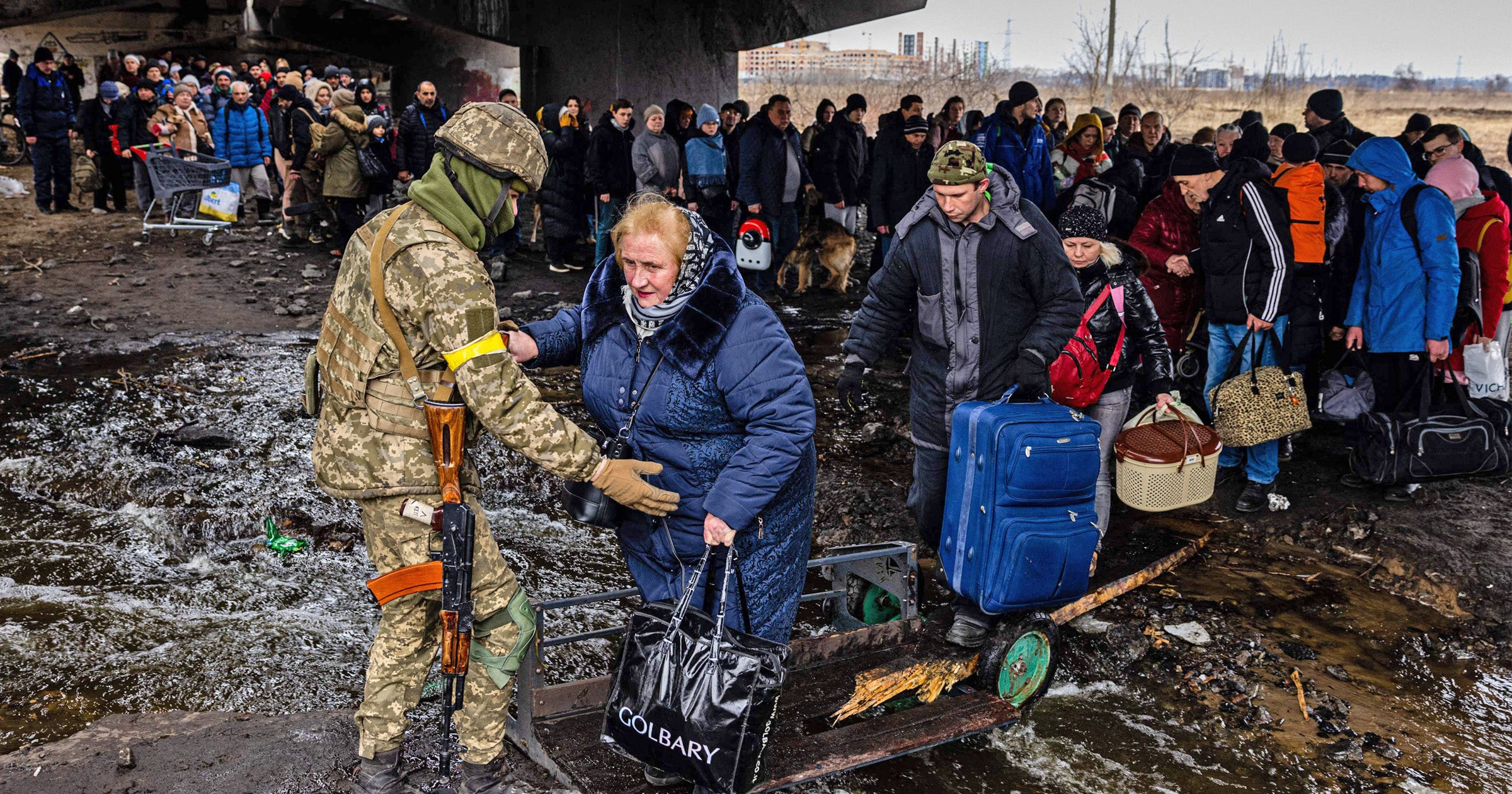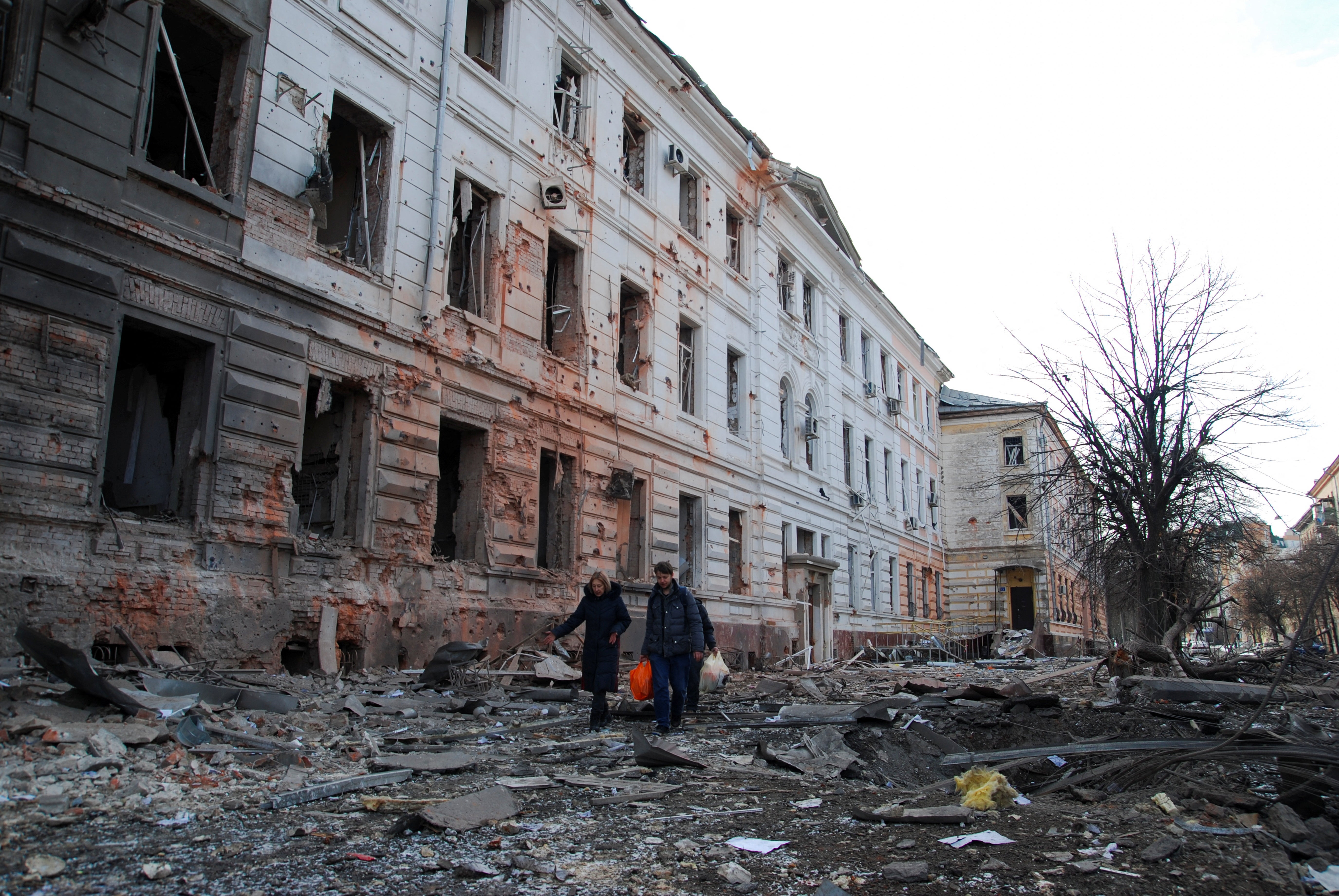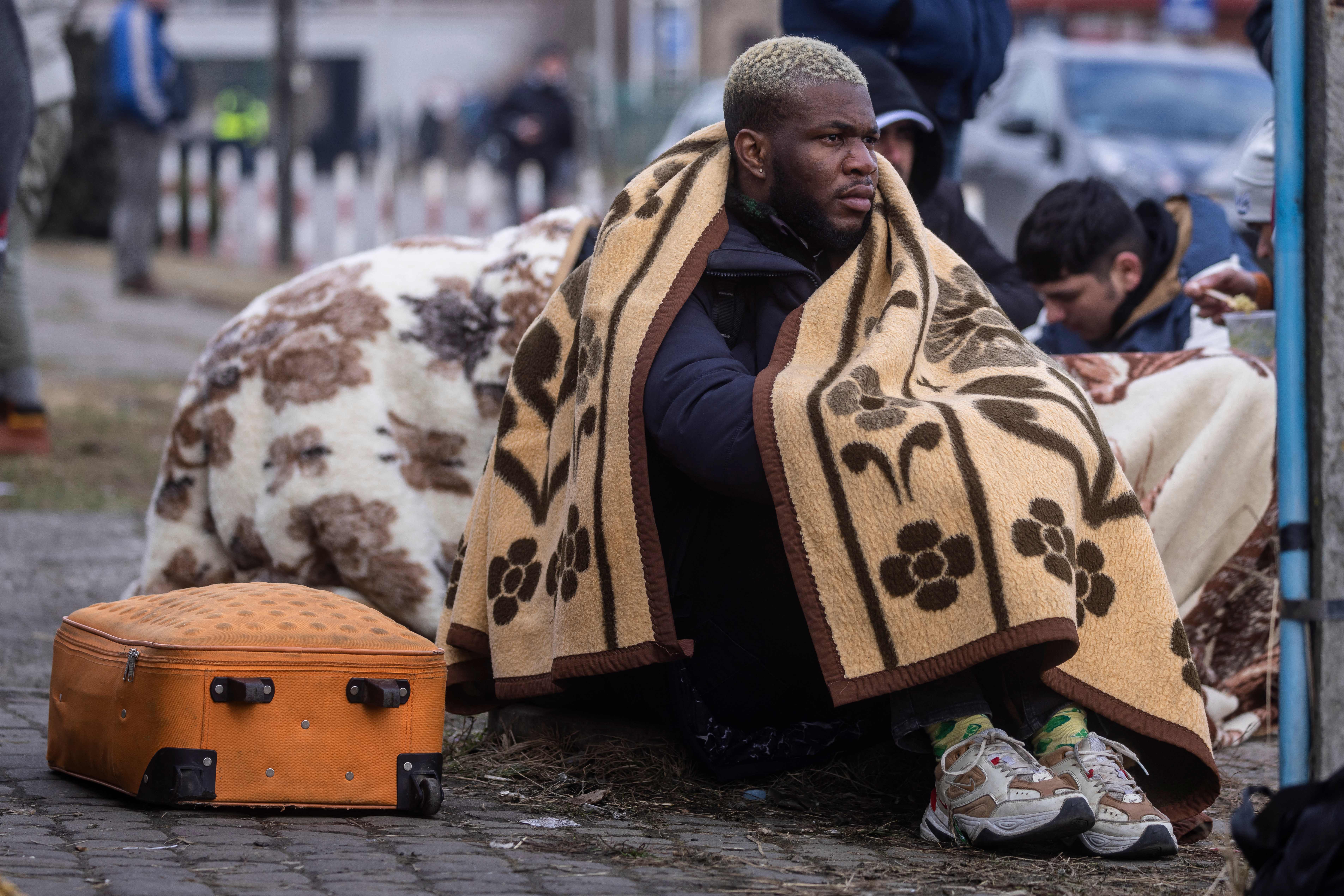Russia makes new offer of evacuation routes in five besieged Ukrainian cities including Kyiv
The Kremlin has pledged to let civilians safely exit Kyiv, Chernihiv, Sumy, Kharkiv, and Mariupol
Your support helps us to tell the story
From reproductive rights to climate change to Big Tech, The Independent is on the ground when the story is developing. Whether it's investigating the financials of Elon Musk's pro-Trump PAC or producing our latest documentary, 'The A Word', which shines a light on the American women fighting for reproductive rights, we know how important it is to parse out the facts from the messaging.
At such a critical moment in US history, we need reporters on the ground. Your donation allows us to keep sending journalists to speak to both sides of the story.
The Independent is trusted by Americans across the entire political spectrum. And unlike many other quality news outlets, we choose not to lock Americans out of our reporting and analysis with paywalls. We believe quality journalism should be available to everyone, paid for by those who can afford it.
Your support makes all the difference.Russia has promised to allow five humanitarian corridors to be formed in Ukraine to let people flee major cities under attack by Vladimir Putin’s forces.
The firing of weapons will stop from 0700 GMT on Wednesday, Russian news agency Tass cited a senior official as saying.
Mikhail Mizintsev, head of the Russian National Defence Control Centre, said the corridors will lead out of Kyiv, Chernihiv, Sumy, Kharkiv, and Mariupol.
He was quoted as saying: “Given the deteriorating humanitarian situation ... and in order to ensure the safety of civilians and foreign citizens, Russia will observe a regime of silence from 10 am Moscow time on March 9 and is ready to provide humanitarian corridors.”
However, it comes after several previous attempts to establish safe exits out of cities and towns under siege have failed.
Mr Mizintsev claimed that Ukrainian authorities had agreed to only one civilian evacuation route out of 10 that were proposed.

Information about the corridors to be allowed on Wednesday will be sent to Ukrainian deputy PM Iryna Vereshchuk, Mr Mizintsev added.
Earlier, Ms Vereshchuk said civilians were unable to be evacuated from Mariupol, a port city on the Black Sea coast, because Russian troops had been firing at a Ukrainian convoy carrying aid to the city that was to carry civilians on its way out.
The Russian military has denied firing on convoys and claimed that the Ukrainian side was blocking the evacuation effort.

Mariupol was in a “catastrophic situation” as it has been cut from water, power and communications, Ms Vereshchuk said in a televised briefing.
The city’s authorities have been digging mass graves, as corpses of soldiers and civilians have laid on the streets.
A young girl died of dehydration in Mariupol, in the first known case of death by dehydration in Ukraine since the Second World War, Ms Vereshchuk said.

One humanitarian corridor has been successful in evacuating thousands of people.
Ukraine said some 5,000 people – including 1,700 foreign students – were evacuated from Sumy in eastern Ukraine.
President Volodymyr Zelensky has called for Ukraine’s allies in Nato to impose a no-fly zone over the country to allow refugees safe passage to neighbouring countries.

More than 2 million people have fled Ukraine into safer nations in Europe, according to the United Nations.
But the Ukrainian president’s request for a no-fly zone to allow more people to flee urban areas hit hard by Russian troops has been rejected a number of times by western nations – over fears that such a move could spark a wider conflict.
White House press secretary Jen Psaki said on Tuesday that even a limited no-fly zone over humanitarian corridors could still escalate the war and possibly lead the United States into war with Russia.

Ms Psaki told reporters that any span of a no-fly zone would require the shooting down of Russian military aircraft if the Kremlin and its forces violated the rules.
She added: “We would still have concerns about that being an escalatory action that could lead us into a war with Russia, which is not something the president intends to do.”
The Independent has a proud history of campaigning for the rights of the most vulnerable, and we first ran our Refugees Welcome campaign during the war in Syria in 2015.
Now, as we renew our campaign and launch this petition in the wake of the unfolding Ukrainian crisis, we are calling on the government to go further and faster to ensure help is delivered.
To find out more about our Refugees Welcome campaign, click here. To sign the petition, click here.
If you would like to donate, click here for our GoFundMe page.






Join our commenting forum
Join thought-provoking conversations, follow other Independent readers and see their replies
Comments